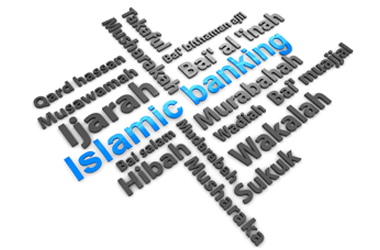In the context of Islamic Finance, does one have a right under the Indian Constitution to receive financial services that are compliant with their religious practices?
Before answering this question, a few things need to be put into perspective.
- In light of the global success of the Islamic Finance Industry, there is no doubt that there are legitimate financial products that can be introduced in India. Many banks are in fact ready to deploy such instruments in India as soon as legal barriers are removed
- A large number of people in our country are excluded from financial services like banking (as documented by the report of the Sachaar Committee), which is a key factor for development amongst the poor. Credit leads to growth of entrepreneurship. However, the question is, if there are religious barriers to these people who are against entering into transactions involving charging of interest, and there are non-interest based (and thus sharia compliant) financial products which are viable and found to be stable and profitable around the world, is there any rational in not offering the same in India too? None that I can see, and none that the Government of India offers as reason.
- Is offering such a banking product against secularity? We have adopted the free market in India – and the underlying principle of that market is that demand and supply determines whether a product should exist or not. Everything depends on freedom of choice. As long as there is no significant externality (negative side effects on people other than buyer and seller of the product) or some other kind of market failures (monopoly, asymmetric information etc) the government should not interfere with the free market. In this case, existing laws made by the government to regulate banks prevent them from undertaking Islamic banking products. This is a question of free market economy as much as it is of religious preference.
Right to Islamic Finance under the Constitution
Under the Indian Constitution, right to development has been recognized as a Fundamental Right under Article 21. Access to a credit system and financial services is a very important ingredient of development. While it is possible to argue that the Muslims who does not participate due to the prohibitions in their faith are not excluded by the government by their own preference, it is prima facie faulty argument. The question is not whether Muslims should participate in the regular interest based banking system. The question is whether a viable and credible credit system which is in compliance with their faith, on that they want to access can be arbitrarily (arbitrarily, since no good reason is offered for the same) barred from developing.
Politically, this is a very strange action on part of the ruling party which claims to be pro-Muslim interest.
Legal recourse to legalize Islamic Banking and Finance in India:
The best way to deal with this seems to be taking up the matter up through a writ before High Courts and the Supreme Court, since effectively barring Islamic Finance through regulations amount to violation of Right to Equality (arbitrariness), Right to Practice a Religion (since following religious tenet is resulting in financial exclusion) and Right to Life. Most importantly, once the case is admitted and notice is issued to the Government, they will need to take a stand on the matter. The Government will find it very difficult to take an anti-islamic finance stand in the matter and hopefully the process will thus be expedited.
 Serato DJ Crack 2025Serato DJ PRO Crack
Serato DJ Crack 2025Serato DJ PRO Crack









 Allow notifications
Allow notifications


